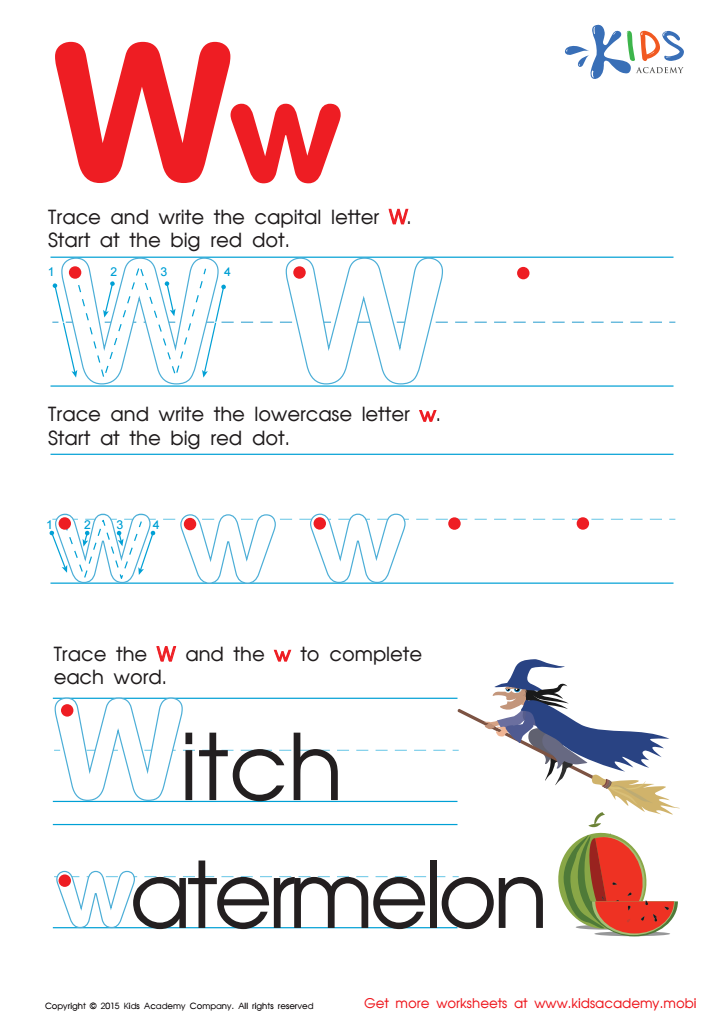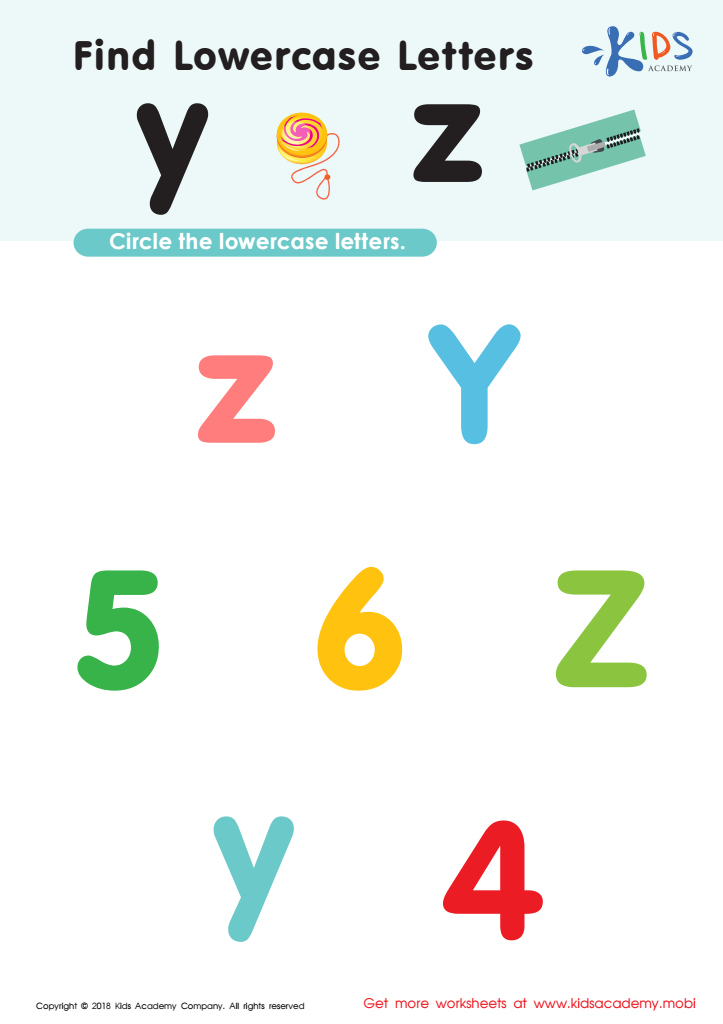Alphabetical understanding Worksheets for Ages 6-7
3 filtered results
-
From - To
Boost your child's alphabetical skills with our engaging Alphabetical Understanding Worksheets for Ages 6-7 from Kids Academy. Designed to make learning fun and effective, these worksheets help young learners master letter recognition, sequencing, and early alphabetical order. Featuring a variety of interactive exercises, children will enjoy activities like matching, tracing, and writing while enhancing their vocabulary and spelling skills. Perfect for both classroom and at-home use, these printable worksheets support essential literacy development and make alphabet learning an adventure. Cultivate a love for letters and words with Kids Academy's expertly designed educational resources!


Letter E Coloring Sheet


Letter W Tracing Page


Find Lowercase Letters y z Worksheet
Alphabetical understanding is crucial for children aged 6-7 because it sets the foundation for their literacy skills. At this age, children's brains are highly receptive to learning new concepts, and grasping the alphabet is the first step toward becoming proficient readers and writers.
Firstly, knowing the alphabet helps children recognize and name letters, a fundamental literacy skill. This recognition is essential for decoding words, which involves sounding out letters and blending them to form words. Being proficient in decoding is critical for reading fluency, comprehension, and, ultimately, academic success across all subjects.
Secondly, alphabetical understanding aids in developing spelling and vocabulary skills. When children learn the alphabet, they begin to understand the relationship between letters and sounds, helping them spell words correctly. A strong vocabulary is directly linked to better reading comprehension and communication abilities.
Moreover, alphabetical order is a basic organizational tool. Children who understand alphabetical order can effectively use dictionaries, indexes, and other reference tools, enhancing their research skills and fostering independence in learning.
Finally, early proficiency in alphabetical skills boosts children's confidence and enjoyment in reading and writing activities. Positive early literacy experiences inspire greater motivation to read and learn, establishing lifelong habits that promote educational and personal growth.

 Assign to the classroom
Assign to the classroom












